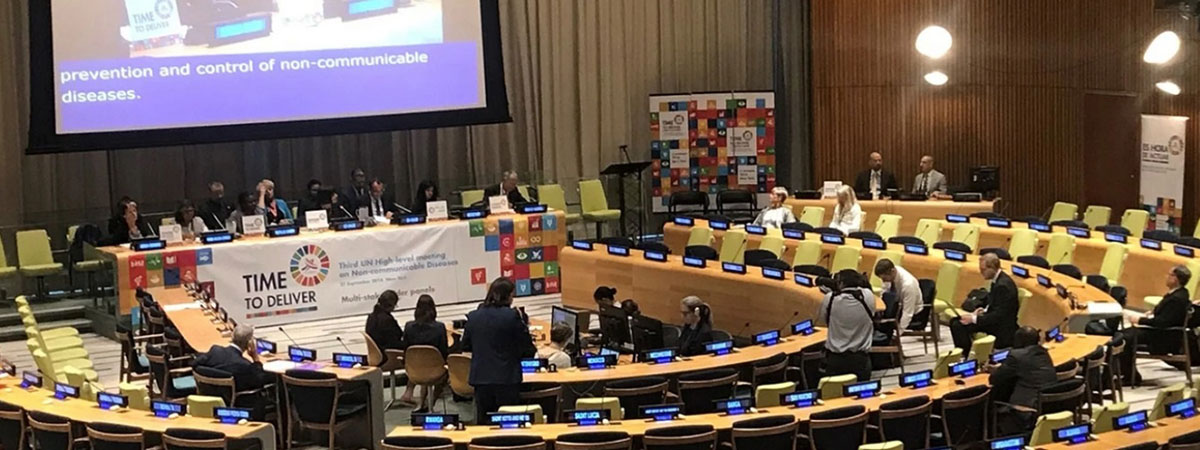World Patients Alliance Welcomes UN Political Declaration on NCDs and Mental Health
September 29 | 2025
The World Patients Alliance (WPA) welcomes the adoption of a new political declaration at the Fourth High-level Meeting of the United Nations General Assembly on the Prevention and Control of Noncommunicable Diseases (NCDs) and the Promotion of Mental Health and Well-being, held in New York on 25 September 2025.
The declaration sets ambitious global targets to be reached by 2030, including reducing tobacco use, placing 150 million more people with hypertension under effective treatment, and expanding access to mental health care for 150 million additional people. For the first time, dementia has been recognized as a leading noncommunicable disease, highlighting the growing need for comprehensive and patient-centered approaches to NCD prevention and care.
The document also broadens the scope of NCD policy by addressing oral health, kidney disease, and environmental and commercial determinants such as air pollution, chemical exposure, digital harms, unhealthy food marketing to children, and elimination of industrial trans fats. Together, these measures reflect a stronger, more holistic framework to protect populations and improve health outcomes worldwide.
While the declaration faced procedural challenges, including objections raised by the United States that prevented immediate adoption by consensus, the overwhelming majority of UN Member States demonstrated strong support. The draft is now moving forward for formal approval by the General Assembly. For patients and civil society, this moment underscores the importance of vigilance and advocacy to ensure that political commitments translate into meaningful action.
From WPA’s standpoint, this declaration is a critical milestone for patient safety and empowerment. By setting concrete targets and broadening the global understanding of NCDs and mental health, world leaders have acknowledged that health systems must be redesigned with patients at the center. Civil society organizations, especially patient groups, now have a unique role in ensuring governments are held accountable for delivering on these promises.
This commitment also resonates strongly with WPA’s upcoming European Regional Meeting in Lisbon (1–2 November 2025), which places the UN political declaration and the fight against NCDs at the heart of its agenda. The meeting will bring together patients, advocates, and health leaders to discuss how these global commitments can be localized, implemented, and monitored in Europe.
“Patients are not passive recipients of care they are central partners in shaping health policies,” said WPA CEO Hussain Jafri. “The UN declaration is a step forward, but it will only be meaningful if translated into action that patients can see and feel in their daily lives. WPA remains committed to ensuring that patient voices guide these global commitments toward real change.”
The World Patients Alliance congratulates Member States on this important step and calls for strong partnerships between governments, civil society, and patients to meet the 2030 targets. By working together, the vision of safer, more equitable, and people-centered healthcare can become a global reality.


